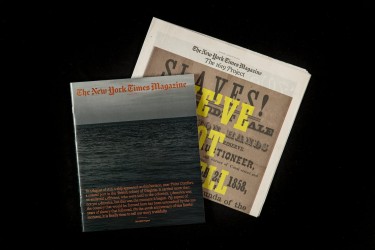Obviously, you’re not a fan of 1619. But what view of Black history would you like to see in K-12 classrooms? Is it that Roots version, the multiculturalist perspective that emphasizes themes of cultural continuity and pride in the achievements of Black people?
We live in a diverse, multicultural society. Public schools belong to all of us, and it behooves us to teach about our past in a way that respects everyone. Maybe the multicultural nirvana was never possible, but what counts is the good faith effort to be inclusive, to be respectful, and to realize that we’re on a boat at sea together. You can’t drill a hole in one side of the boat without sinking the other side.
Here comes the most uncomfortable truth of all: We don’t know whether white Americans will become a self-conscious ethnic group in their own right, but there are reasons to believe that they’re becoming precisely that. To the extent that they’re becoming that, they are part of this diverse America that has to be taken into account as well, and you can’t treat them as a default category with no culture and no history.
The fact of the matter is, white people are becoming one among many ethnic groups, and their anger is a reflection of what they feel to be the growing power of other groups. To the extent that their perception is creating a reality, we’re all going to have to deal with that reality. And the way to deal with that reality, in a pluralistic society, is to honor the identity group that presents itself to us. Because they’re far from powerless. We can’t pretend that they’re powerless, just like we can’t pretend that we have no power.
What I’m calling for is a return to multiculturalism as a procedural frame for how we go about educating our kids about history. As a good pluralist, I believe there’s a shared culture, and I don’t believe that everybody is an equal contributor to history at any given moment. World War II shouldn’t be reduced to “the multicultural history of World War II”; there’s an ethnic dimension to how people recruit for World War II, and there are stories we can tell about various groups during World War II, but those key battles are the key battles. History is not always reducible to a story of multiculturalism.
However we teach it, though, we need to be mindful that there is a diverse group of people participating. As a kind of modus operandi, how we teach history is what I’m most concerned about. The purpose should never be to make anybody in the audience uncomfortable to the point that this is grievance history. Because what happens then? Everybody gets to voice their grievances? I think that’s where we’re headed if we’re not careful.












